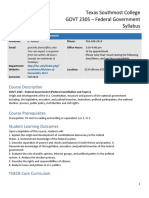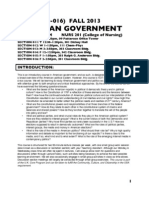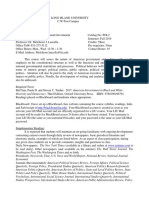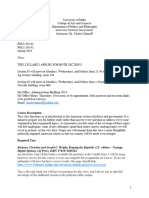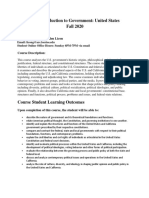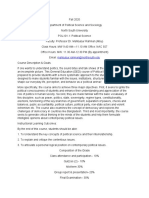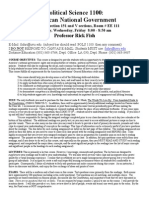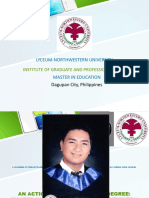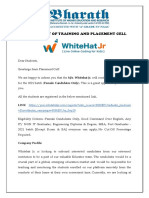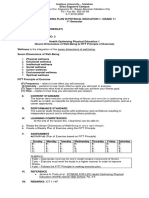0% found this document useful (0 votes)
99 views5 pagesPOL102 Syllabus Spring 2021
This document outlines the syllabus for an online Introduction to American Government course offered in the spring of 2021. The course will be conducted entirely online over 15 weeks, from February 1 to May 8. It will cover the foundations of American government, the institutions established by the constitution, and political behavior in the US. Students will read a textbook, complete online exams and discussion boards, and keep up with current events. The course aims to provide students with a fundamental understanding of how the US political system developed and currently operates.
Uploaded by
jimmyCopyright
© © All Rights Reserved
We take content rights seriously. If you suspect this is your content, claim it here.
Available Formats
Download as DOCX, PDF, TXT or read online on Scribd
0% found this document useful (0 votes)
99 views5 pagesPOL102 Syllabus Spring 2021
This document outlines the syllabus for an online Introduction to American Government course offered in the spring of 2021. The course will be conducted entirely online over 15 weeks, from February 1 to May 8. It will cover the foundations of American government, the institutions established by the constitution, and political behavior in the US. Students will read a textbook, complete online exams and discussion boards, and keep up with current events. The course aims to provide students with a fundamental understanding of how the US political system developed and currently operates.
Uploaded by
jimmyCopyright
© © All Rights Reserved
We take content rights seriously. If you suspect this is your content, claim it here.
Available Formats
Download as DOCX, PDF, TXT or read online on Scribd
/ 5



